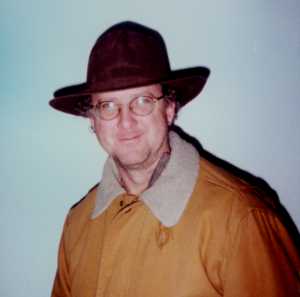Column by George Sibley
Environment – March 2004 – Colorado Central Magazine
FOR THE SAKE OF the earth and all life thereon, not to mention a century of fumbling but earnest efforts to create a fair and accessible society, I am hoping that the neoconservative assault on everything I value as an American will be turned back this November, and I am heartened by what seems to be a growing awareness of how massive this assault has been in the past three years.
But I remain pretty depressed about the probable outcome of the election. I remember too well the late 1960s and early 1970s, when President Richard Nixon and his shotgun Spiro Agnew, beset by a lot of noisy critique of their Vietnam policy, took refuge in the claim that, despite that noisy “minority,” they had the support of a “silent majority.” At that time, full of the idealistic elitism of the forever young and naively fearless, I poopoohed the idea of the “silent majority.”
But at this point, I would belatedly concede that a silent majority probably existed then, as it exists now. Today, on any given issue, a majority of the American mass, or at least a large percentage of it, will support the policies of the party in power, especially when the major media align themselves with that power.
Britney Spears said it for the “silent majority” a couple of months ago on CNN: “Honestly, I think we should just trust our president in every decision he makes and should just support that, you know, and be faithful in what happens.”
The eternal ubiquitous polls support her, uh, analysis; no matter what our president does, and how much it goes against good sense, our pocketbooks, our environmental commons, the Constitution, or all of the above, around two-thirds of the people polled continue to either like him or his policies or both.
Most of the evidence of history, including that of the Vietnam era, indicate that silent majorities eventually wake up to the screaming excess of arrogance at the top levels of leadership, but it is such a glacially slow process that most of the damage that can be done has been done by the time the silent majority says, “Whoa.”
We can, for example, be glad that the American polls eventually turned against Nixon-Kissinger globalism, just as we can be glad that most Germans seemed to agree, along about the mid-Forties, that going along with Hitler and “being faithful in what happens” was pretty stupid. But look at the disasters wrought in the interim. Is there anything to be done about this?
I had a pretty sharp group of students last term, in an editorial-writing class over here at Western State College, and I tried to pin them down on the “silent majority” in their own generation — the 18 to 24 year-old group, the future of our nation. These are the people who must know that they are going to get totally screwed if the Social Security process is not fixed; who are going to have to face the draft if the reserve process doesn’t provide enough people to do God’s work around the world; who face a deteriorating socio-ecoomic environment in terms of jobs, medical insurance, air and water quality, et cetera, et cetera. But less than half of that demographic even registered to vote in 2000 and less than a third actually went to the polls.
SO FOR MY STUDENTS’ FINAL EXAM last term — in keeping with my maxim that, if I’m going to have to read all this stuff, I might as well try to make it something I can learn from — I asked them to write an editorial explaining this situation, with whatever supporting anecdotal information they could get from their friends and coworkers in the Upper Gunnison Valley. I also asked them what they thought could or should be done about the situation.
Much of what I heard from them was what you might anticipate. Some of the writers or their friends confessed — with an irritating cheerfulness — that they were either too lazy or found it all “too boring,” or both.
But most of the more serious responses focused on a feeling of impotence — an impotence often disguised as a cool-sounding cynicism. “My vote won’t change anything.” “National stuff just doesn’t seem to apply to me.” “Big corporations have it all bought anyway.”
Another side of this cynical view was the conviction that none of the candidates tried to address them and their concerns or cared about what they thought. “The candidates never appeal, or even try to appeal, to the younger generation.”
The naivete of that perception, however, seemed to be laid out in another student’s comment: “Whenever I try to find out more about who’s running I always hear about taxes, which I don’t care about. How does [talk about taxes] address me?”
Huh?
Many of the writers suggested that the education system is at least partially at fault here. Some claimed to have had a “civics class” in high school (as I did), but remembered it (as I did) as just another boring fact-oriented course.
At the college level, I doubt that Western is that unusual in having no formal program for encouraging a sense of civic responsibility and engagement. We basically “sell” education all the way through as a process of preparing yourself for a career; no college advertises itself as a good place to learn good citizenship.
BUT ONE WRITER made an observation that I hadn’t really thought about. He said that the schools (at all levels) aren’t just failing to provide a good solution to the problem; there’s an extent to which they are the problem. “College students,” he said, “have spent their whole lives conforming to an educational system that they are forced to be a part of,” and given no input on, and how does that give students the feeling that their opinion (especially if it is a non-conforming opinion) means anything? This writer suggested that “giving (students) the chance to have a say in how the education system is run” might be a step in the direction of encouraging them to be more democratically engaged.
I might observe that college students, being 18 or older for the most part, could have a say in how public higher education is run — especially if they got their young butts a little organized as a voting interest group. But the fact is — speaking as a teacher — the vast majority of the students I encounter in the college classroom are already pretty well indoctrinated into the silent majority. They’ve absorbed the rules public education teaches: show up on time; figure out what’s expected and just do it; don’t ask embarrassing questions; and if you can’t say something nice don’t say anything at all. And I think that, protestations to the contrary, that is exactly how most of our political leaders want our kids to be, which is why our schools and public colleges are the way they are.
We have a well-indoctrinated silent majority for the same reason we still have an Electoral College: We still don’t trust this idea of democracy enough to try to make it work. Go, Britney.
George Sibley teaches and writes in Gunnison.



